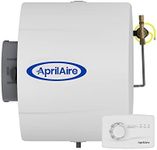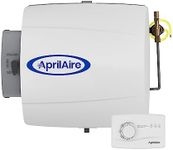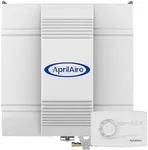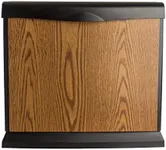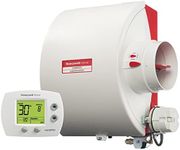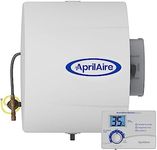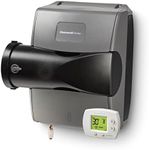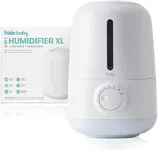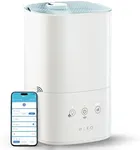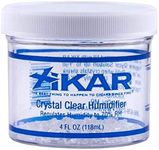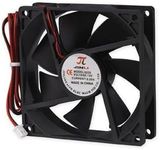Buying Guide for the Best Whole House Furnace Humidifiers
Choosing the right whole-house furnace humidifier is essential for maintaining a comfortable and healthy indoor environment. A humidifier adds moisture to the air, which can help alleviate dry skin, reduce static electricity, and prevent damage to wooden furniture and musical instruments. When selecting a humidifier, it's important to consider several key specifications to ensure it meets your needs and fits your home. Here are the key specs to look at and how to navigate them.CapacityCapacity refers to the amount of moisture a humidifier can add to the air in a given time, usually measured in gallons per day. This spec is important because it determines how effectively the humidifier can maintain the desired humidity level in your home. For smaller homes or apartments, a lower capacity (around 10-12 gallons per day) may be sufficient. For larger homes, you may need a higher capacity (up to 18 gallons per day or more). Consider the size of your home and the typical humidity levels in your area to choose the right capacity.
Type of HumidifierThere are different types of whole-house furnace humidifiers, including bypass, fan-powered, and steam humidifiers. Bypass humidifiers use the furnace's blower to move air through a water panel, while fan-powered models have their own fan to push air through the water panel. Steam humidifiers boil water to create steam, which is then distributed through the ducts. Bypass models are generally quieter and more energy-efficient, while fan-powered models are more effective in larger homes. Steam humidifiers provide the most consistent humidity but are more expensive and require more maintenance. Choose the type that best fits your home's size and your preference for maintenance and efficiency.
Control OptionsControl options determine how you set and maintain the desired humidity level. Basic models may have manual controls, while more advanced models offer digital controls and even smart home integration. Manual controls are straightforward but require more frequent adjustments. Digital controls allow for precise humidity settings and often include features like automatic shutoff and maintenance alerts. Smart home integration lets you control the humidifier remotely via a smartphone app. Consider how much control and convenience you want when choosing a model.
Installation RequirementsInstallation requirements refer to the complexity and compatibility of installing the humidifier with your existing HVAC system. Some models are designed for easy DIY installation, while others may require professional installation. It's important to check if the humidifier is compatible with your furnace and ductwork. If you're not comfortable with DIY projects, or if your HVAC system is complex, opting for professional installation might be the best choice. Ensure you understand the installation process and requirements before making a decision.
Maintenance NeedsMaintenance needs include the regular tasks required to keep the humidifier running efficiently, such as cleaning, replacing water panels, and checking for mineral buildup. Some models have features that make maintenance easier, like easy-access panels and maintenance alerts. Consider how much time and effort you're willing to invest in maintenance. If you prefer low-maintenance options, look for models with self-cleaning features or those that require less frequent upkeep.
Noise LevelNoise level refers to how much sound the humidifier produces while operating. This is important if you are sensitive to noise or if the humidifier is located near living or sleeping areas. Bypass humidifiers are typically quieter because they rely on the furnace blower, while fan-powered and steam models can be louder. Check the noise level specifications and consider where the humidifier will be installed to ensure it won't be disruptive.
Energy EfficiencyEnergy efficiency indicates how much energy the humidifier uses to operate. More efficient models will use less electricity, which can save you money on utility bills. Look for models with energy-saving features like automatic shutoff and variable speed fans. Consider the long-term energy costs when choosing a humidifier, especially if you plan to use it frequently.

